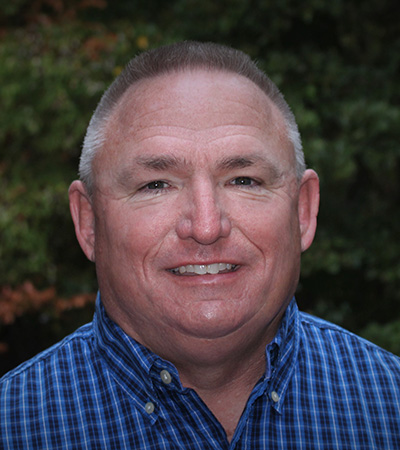
What is your job title?
I'm a Safety Consultant and primarily our customers came from the cooperative. My father spoke at that seminar for several years. Since a lot of our client base came from cooperatives, we felt that one of us should go through the program. So, I went through the program to truly learn, the nuances and concerns that electric co-ops have across the country.
How has the program, the CLCP, how has it helped you grow or gain more skills or strengthen your skills
The biggest thing is you understand are the nuances and the concerns Coops have. They are unique in the environment they work in. Everything from standard day-to-day operations to emergency operations, up to storm restoration.
By attending the CLCP program, the instructors did a great job and, and educated me on the process and things that were vital to doing this job. Getting to network with all the different people that were there, all the different cohorts. Representatives were there and discussing with them what their concerns were and how the different ways that they could approach that and still do it. That's probably one of the best things that I got out of the program. You know, get, get the two folds. You have the experience that you get in a classroom, but the networking that you do after the classroom at breaks and discussion. That really kind of ties it all together.
Do you keep in touch with the people that you studied with?
After completing the course, I actually started teaching this course. I teach seminars one and two now. I went to the course and the opportunity presented itself for me to start speaking at the course. So now I currently instruct at the course. I get a chance to see the people that I was in class with, not directly because a lot of them have moved up in position. Now I'm meeting their employees and I still get to meet and still network with several of the people that I did go to class with, you know, at conferences and sometimes by telephone if they have a concern or something, that's something I can help them with. I always do that.
What's the number one thing that made a difference for you about the CLCP program?
You look at it from a, just a OSHA safety perspective. Their industry has a specific standard and a class to them directly and to no other group. A better understanding of that particular standard of course, but also, how they apply, that state in many different ways. You know, OSHA standards or performance based standards. They don't tell you how to complete the task. They just tell you what the end result needs to be and going into this program shouldn't you all the different ways people were meeting that objective but doing it in different ways and learned from, you know, so you can, by getting that education you could better understand how to help others with the same problem and maybe in a different state. Uh, but, uh, you had a lot of time to get phone calls and they'll go, this is what we're currently doing. What other options are out there? What else is out there for us? And, um, and so allowed me to understand better how the different ways that people are approaching certain safety concerns.
Did you have to do a project to like, like the students or no?
Yes ma'am. I did the same exact, everything was exactly the same. Oh Wow. So I did a project, um, completed my project and uh, cause everyone had, there was no difference in the program that I went through or with any did anyone else did. Oh, so it was your project on actually my own best to do a project on faith back then you drew out of a hat and it really wasn't an option. Um, so I drew abrasive wheel grinder, so how to properly use 'em maintain them as this type of thing. A bicycle grinders are highly fried area on OSHA inspections. I think that's how they came up with that one. So, um, that was my project was on that. What, what grinders? Uh, abrasive wheel grinders basically for bench grinder like that you have in many of your shops and mechanics areas. Oh, Granddad and sharpen tools. Oh. And so I did a project basically on that [inaudible]. Oh, okay.
